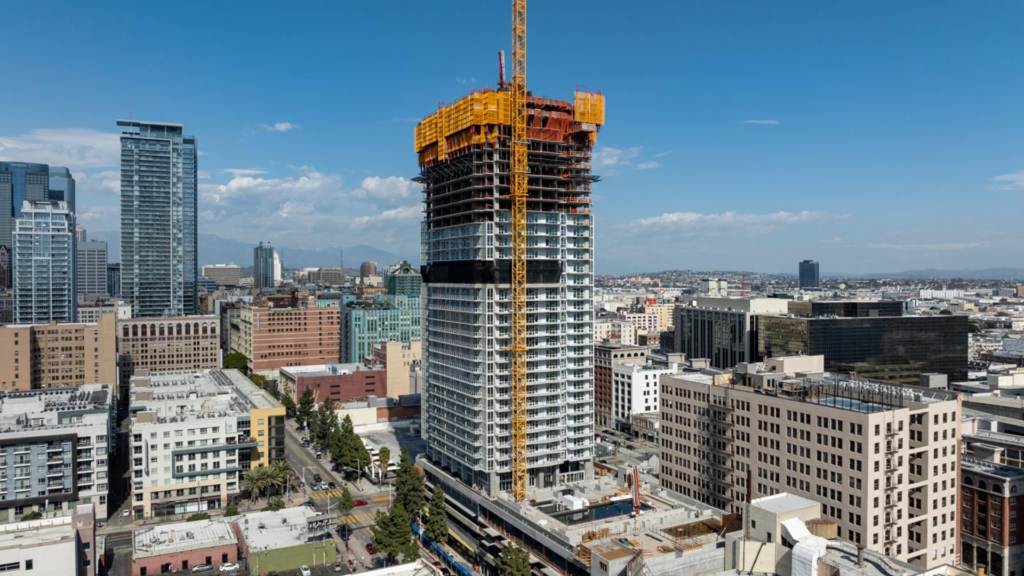L.A. County Multifamily Market Shifts as Vacancies Rise and Rents Reach New Highs, Offering Opportunities for Capital-Ready Investors
Strategic Investors Navigate Tight Credit Conditions and ULA Tax Challenges


MARKET OVERVIEW
In Q2 2024, the multifamily sector experienced another uptick in the vacancy rate, rising 20 basis points quarter-over-quarter and 40 basis points year-over-year to 5.1%. New construction was a key driver of this increase, with newly completed units contributing to a rise in the average asking rent per unit. Following an uptick in the first quarter, the average rent rose again by half a percentage point quarter-over-quarter and by seven-tenths of a percent year-over-year, reaching a record high of $2,207 per unit per month, with 3,715 newly completed units added to the market in Q2 – up 56.9% form Q1 2024.
Multifamily investment has faced significant pressures, creating a challenging landscape. High interest rates, rising construction costs, a slowing economy, and lower rent growth have all contributed to these difficulties. Additionally, the City of L.A.’s ‘ULA Tax’ remains a factor in the investment marketplace. Despite these challenges, historic highs in rent prices serve to mitigate some investor concerns.
Los Angeles County Multifamily Market Q2 2024 Statistics:

The first half of this year reflects the situation, with the number of units sold decreasing by only 1.9% compared to the previous year, totaling 11,019 units year-to-date. However, quarter-over-quarter, there was a significant increase of 122.2% in units sold. The average sale price per unit saw a modest drop of 3.0% quarter-over-quarter but increased by 12.4% year-over-year to $304,876. The sales dollar volume countywide rose by 16.7% from the previous quarter but experienced a significant decline of 26.7% year-to-date. Additionally, the average capitalization rate increased by 30 basis points compared to last year, now standing at 4.9%. Investors are grappling with price discovery as the sales market adjusts.
TRENDS TO WATCH
Elevated interest rates have made borrowing more expensive, reducing investment and spending on home ownership, which bodes well for the existing rental market. This impact is evident in reduced construction due to heightened costs for developers, considering the prospects of lower rent growth. By the end of the first half of 2024, there was a substantial double-digit decline of 34.6% in completed units (6,083), coupled with a notable drop of 9.3% year-over-year in the number of units under construction. This indicates that the supply of multifamily housing units will see some constraints.
Apartment sales volume in the City of Los Angeles has been significantly impacted by Measure ULA, enacted on April 1, 2023. Sales for apartment buildings under the $4.99 million threshold increased by 9.9% quarter-over-quarter as investors shift their focus to properties not subject to the ULA Tax. Conversely, year-to-date sales volume for buildings over $5 million has dropped by 40%, with the number of deals plummeting by 74.5% compared to the first half of last year. This heightened barrier to entry is seen as an opportunity for investors with available capital. Recently, Blackstone Inc. completed its $10 billion acquisition of Apartment Income REIT Corp., which included 76 high-quality rental housing communities in key markets such as Miami, Boston, Washington D.C., and Los Angeles. The L.A. portfolio alone comprises 3,561 units, including The Lincoln Place Apartment Homes in Venice (795 units), Malibu Canyon in Calabasas (698 units), and The Palazzo East at Park La Brea in L.A.’s Miracle Mile (611 units).
Investment demand has shifted as credit conditions tighten. The multifamily market faces a less optimistic growth outlook due to increased borrowing and operating costs, which heighten financial risks. Despite these challenges, demand for certain asset classes within the adjusting sector remains strong.


































































